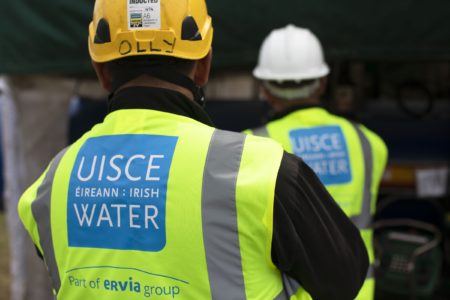3 December 2021
By Elaine Murphy
elaine@TheCork.ie

Irish Water and Cork County Council would like to remind customers supplied by Macroom Public Water Supply that the Boil Water Notice issued on 20 October remains in place until further notice.
The Boil Water Notice serving Macroom town, Codrum, Masseytown, Kilnagurteen, Coolehane, Coolcower, Macloneigh, Carrigadrohid, Ballinagree and surrounding areas, remains in place as a precautionary measure due to elevated turbidity in the supply.
If any customer is unsure if the Boil Water Notice applies to their area, please contact the Irish Water customer care helpline, open 24/7 on 1800 278 278.
Experts from Irish Water and Cork County Council are working to implement solutions to lift the notice as quickly and as safely as possible. In the meantime, all customers on this supply are advised to boil their water before use until further notice.
Neil Smyth, Irish Water’s Asset Operations Lead said: “We have made progress with one of the filters this week and we plan to refurbish the second filter by the middle of next week.
“Once we have finished the refurbishment works next week, we will continue sampling the water supply to verify compliance and continue our consultation with the HSE. Public health remains our number one priority and the Boil Water Notice will only be lifted once it is safe to do so.
“I would again like to thank everyone in Macroom for their patience and cooperation while we work to restore a safe water supply to the community.”
For customers who wish to check if their property is on the Boil Water Notice themselves, please go to the following link on the Irish Water website: https://www.water.ie/help/
In line with HSE COVID-19 advice and the requirement for frequent hand washing, Irish Water advises that the water remains suitable for this purpose and boiling the water is not required.
Vulnerable customers are reminded that the water is safe to consume once boiled.
Water must be boiled for:
Drinking;
Drinks made with water;
Preparation of salads and similar foods, which are not cooked prior to eating;
Brushing of teeth;
Making of ice – discard ice cubes in fridges and freezers and filtered water in fridges. Make ice from cooled boiled water.
What actions should be taken:
Use water prepared for drinking when preparing foods that will not be cooked (e.g. washing salads);
Water can be used for personal hygiene, bathing and flushing of toilets but not for brushing teeth or gargling;
Boil water by bringing to a vigorous, rolling boil (e.g. with an automatic kettle) and allow to cool. Cover and store in a refrigerator or cold place. Water from the hot tap is not safe to drink. Domestic water filters will not render water safe to drink;
Caution should be taken when bathing children to ensure that they do not swallow the bathing water;
Prepare infant feeds with water that has been brought to the boil once and cooled. Do not use water that has been re-boiled several times. If bottled water is used for the preparation of infant feeds it should be boiled once and cooled. If you are using bottled water for preparing baby food, be aware that some natural mineral water may have high sodium content. The legal limit for sodium in drinking water is 200mg per litre. Check the label on the bottled water to make sure the sodium or `Na’ is not greater than 200mg per litre. If it is, then it is advisable to use a different type of bottled water. If no other water is available, then use this water for as short a time as possible. It is important to keep babies hydrated.
Great care should be taken with boiled water to avoid burns and scalds as accidents can easily happen, especially with children.
Irish Water is working closely with Cork County Council to lift the notice as soon as it is safe to do so. Updates will be available on our Water Supply Updates section on water.ie, on Twitter @IWCare and via our customer care helpline, open 24/7 on 1800 278 278. Further information in relation to the Boil Water Notice is available from https://www.water.ie/water-
Irish Water is responsible for the delivery of all public water and wastewater services in Ireland. We are committed to continuously upgrading and developing critical infrastructure to support the growth needed in housing and across our economy, while protecting the environment and safeguarding water supplies.
